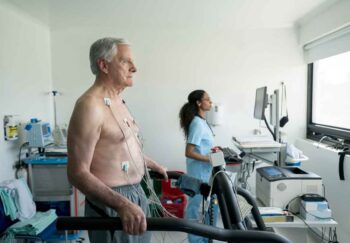Anorexia can break your heart in many ways. If you’re familiar with this eating disorder, you get it: It’s complicated. Anorexia can kick in when you want to be thin, but weight loss goes too far. Without nourishing food, your body, mind, and heart start to feel the pain. Then anorexia heart failure signs show up.
Most people with anorexia have a distorted body image. It’s like those carnival fun-house mirrors. They can make you look small, tall, skinny, or fat. Anorexia makes you fear weight gain — even if the mirror reflects a skeletal body. It usually affects young women, but it can happen to anyone at any age.
Getting better isn’t a quick fix. But it’s doable! Along the way, it’s crucial to watch for serious anorexia side effects. These include anorexia heart failure signs and other risks.
Let’s Get Real About Anorexia Heart Risks
When it comes to your health, every cell matters. Anorexia affects you at every level, from your head to your heart, and every other part of your body. Worrisome anorexia side effects include a higher risk of heart disease. No wonder the latest research findings have scientists sounding the alarm!
Here’s what you need to know: Researchers looked at data from patients diagnosed with anorexia. They compared people with anorexia to those with no eating disorders. The bottom line? Heart conditions were more common in people with anorexia.
Researchers also noted higher risk factors for cardiovascular (heart and blood vessel) disorders. These were noticeable within two to five years of an anorexia diagnosis. Higher rates and risks included:
- Heart attack
- Heart failure (a weakened heart that can’t pump blood very well)
- Heart rhythm disorders
- Other cardiovascular conditions
The good news? You can flip the odds back in your favor. With treatment for anorexia and expert evaluation of heart health, heart risks decline after 5 years. Even so, the risk of ischemic heart disease went up after 5 years. Ischemic disease involves a narrowing of blood vessels throughout your body. This evidence shows why you need to track the health of your heart and blood vessels. It still matters, even after recovery from anorexia.
Other studies have shown a recovery rate from heart issues of 50%-70% after 4 years with treatment of anorexia and related heart issues. So expert, multispecialty care is key. Best of all, research shows that heart complications get better when you get back to a healthier weight. That’s a goal worth fighting for!
Stages of Heart Failure: Why Early Care Matters
Do you have first-hand experience with anorexia? Take a minute to brush up on heart risks and early signs of trouble. When you know the basics, you can help prevent or manage heart issues.
Anorexia leads to malnutrition, which is a common cause of heart failure. This disease is also known as congestive heart failure. This chronic (long-term) condition is treatable with medical therapies and lifestyle changes. Even so, heart failure usually gets worse over time as the heart grows weaker.
As your heart muscle gets weaker, it must work even harder to do its life-supporting job. If it gets more severe, doctors may diagnose advanced heart failure. If you have advanced heart failure, you’ll need hospital care. Serious heart failure can require heart transplant surgery.
Warning signs of heart failure and other types of heart disease can be subtle. You might not notice any symptoms at all. That’s why regular evaluation by a heart specialist is the best way to prevent or treat any heart concerns.
How Can Your Heart Go Wrong?
Different types of heart disease have different impacts on your life.
Anorexia Heart Failure Signs to Know
Common symptoms of heart failure and heart disease include:
- Chest pain or discomfort
- Difficulty breathing when lying down
- Fatigue or weakness
- Feeling lightheaded or faint
- Irregular heartbeats
- Nausea
- Shortness of breath, especially during activity
- Swelling in your legs, ankles and feet, or stomach
- Waking up at night due to shortness of breath
Healing, One Heartbeat at a Time
Even if you don’t notice obvious anorexia heart failure signs, get to know a good cardiologist (heart specialist). A simple evaluation can protect your health and put your mind — and heart — at ease.
Keep in mind that things get better when you don’t go it alone. Relax, take a deep breath, and ask for help. Find trusted friends and talk with the caring experts at UVA Health. We'll work with you to find answers and your best way forward.


